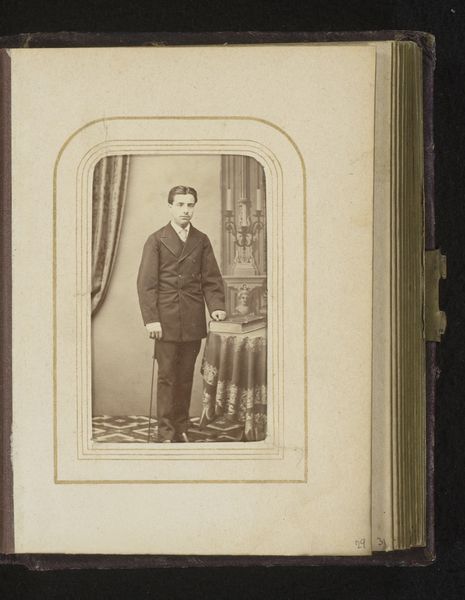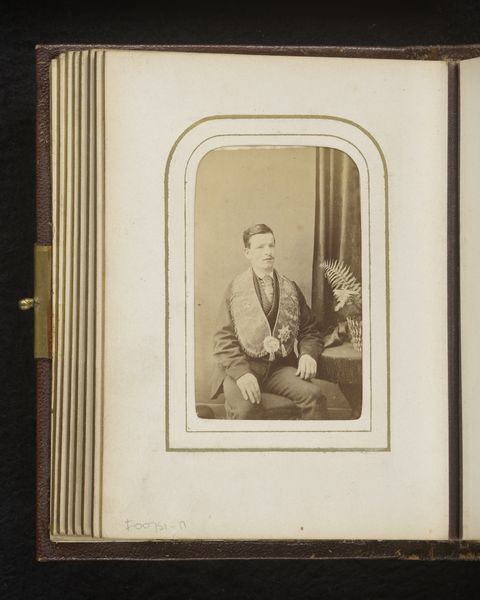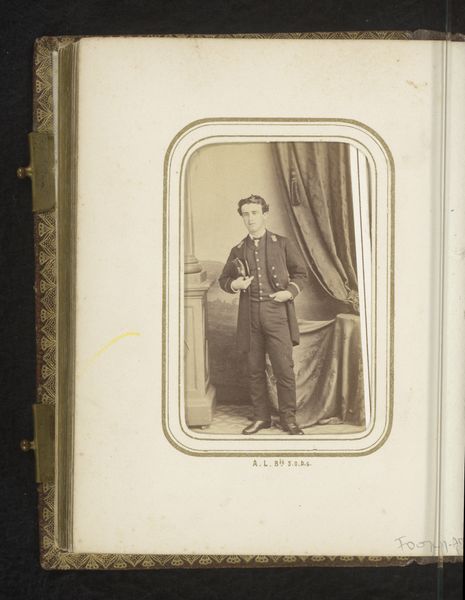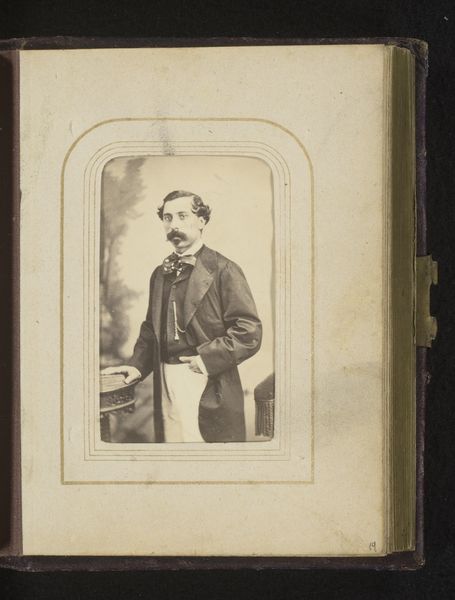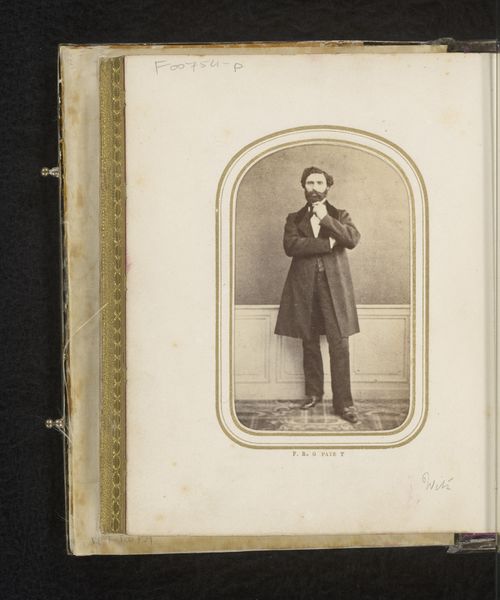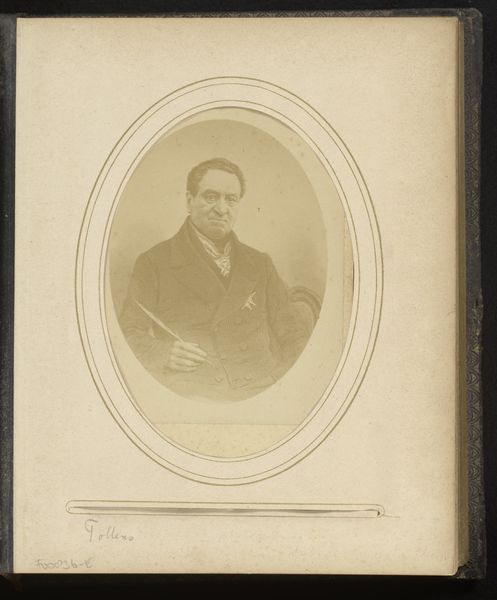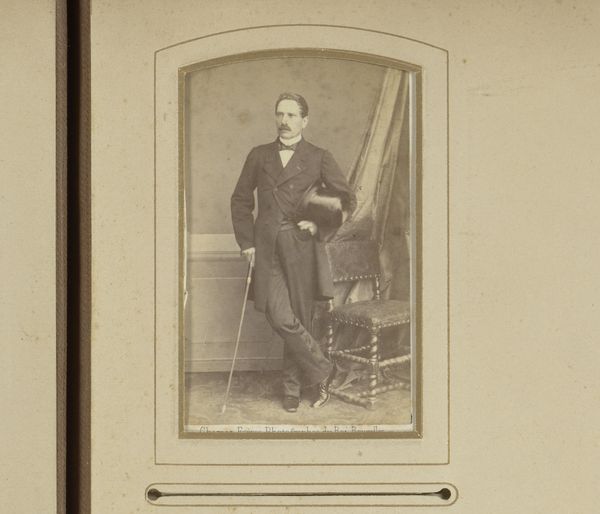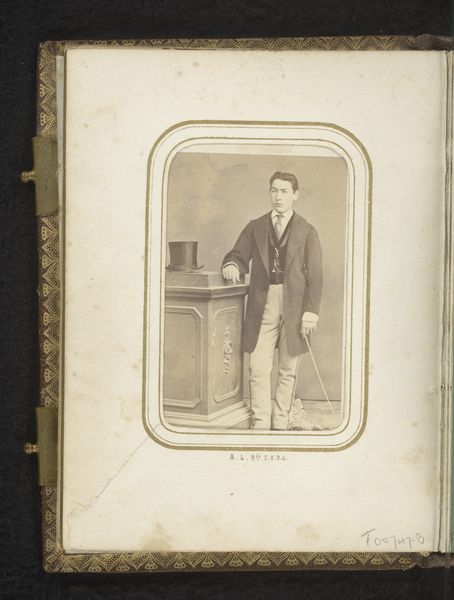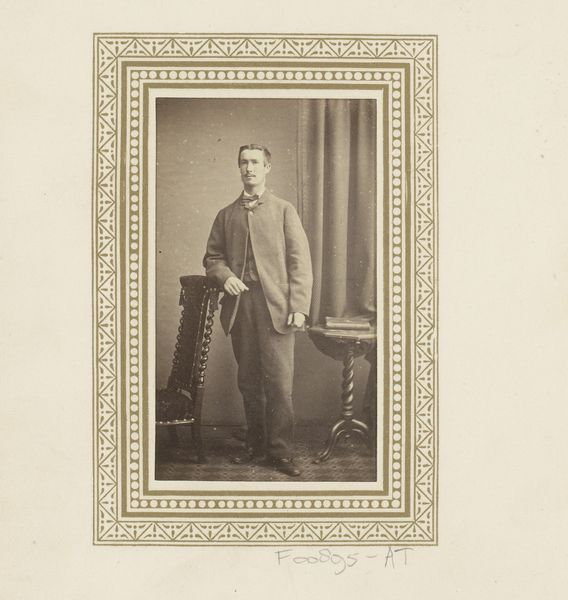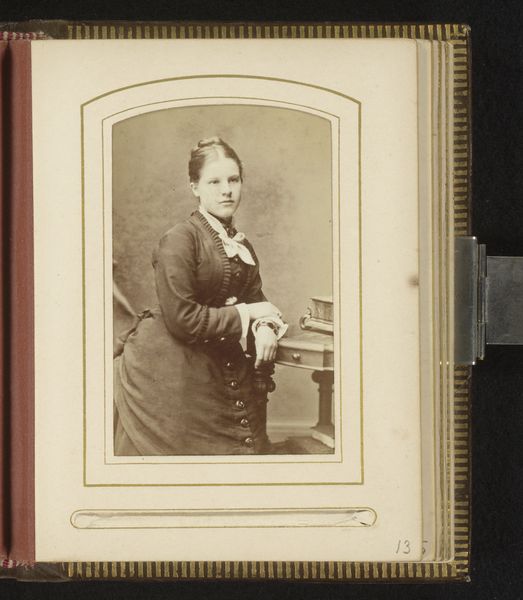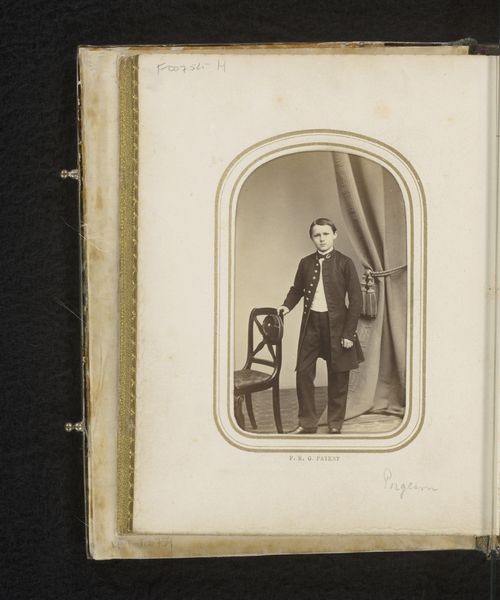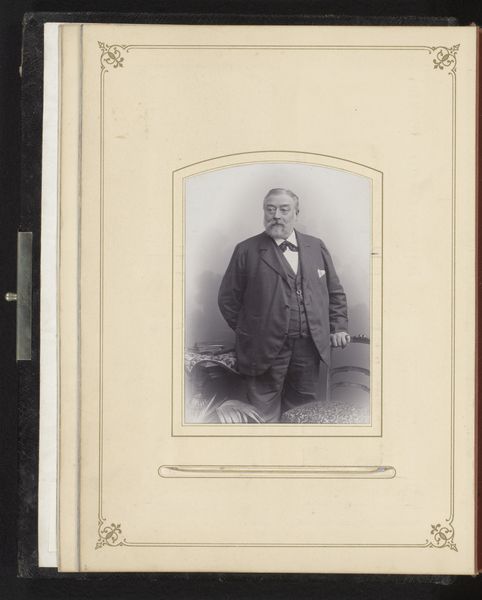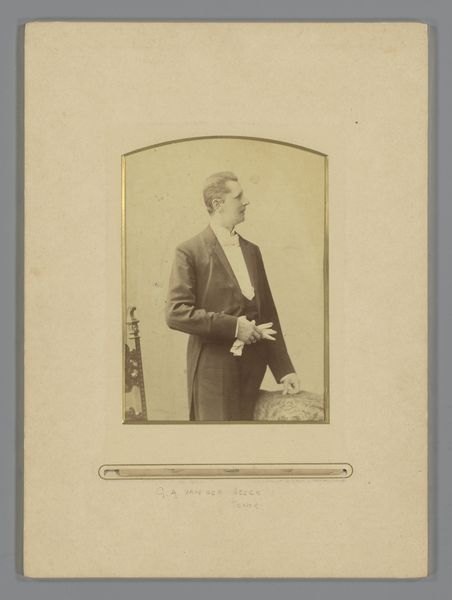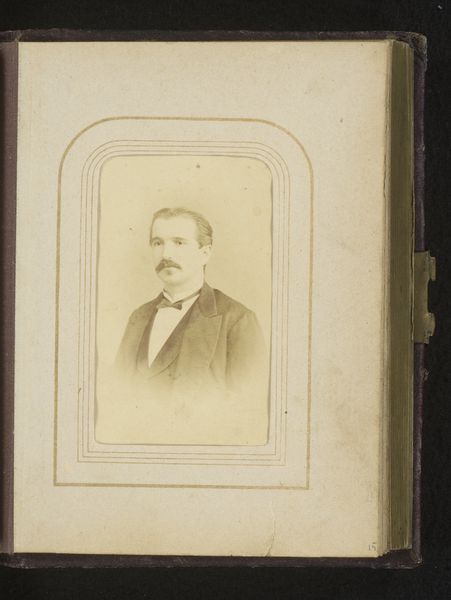
photography
#
portrait
#
aged paper
#
toned paper
#
muted colour palette
#
photography
#
earthy tone
#
neutral brown palette
#
realism
Dimensions: height 83 mm, width 50 mm
Copyright: Rijks Museum: Open Domain
Editor: So this is "Portret van een man met snor en hoed" by F. Quiroga, from sometime between 1860 and 1900, and it’s a photograph. I find the sepia tones so evocative; it’s like peering into another era. What do you see in this portrait from a historical perspective? Curator: It's interesting to consider this portrait not just as an image of an individual, but as a social document. Photographic portraits became increasingly accessible in the mid-19th century. They played a huge role in shaping visual culture and notions of self-representation. What does his clothing, his pose suggest about social status and ideals? Editor: I'd say he seems fairly well-to-do; his clothing seems of quality, and I also observe he is confidently presenting himself to the camera, seemingly hinting towards middle-class respectability perhaps? But the subdued colours might imply something about the era’s aesthetic preferences or even socio-economic constraints? Curator: Precisely! The subdued palette connects to prevailing tastes and the limitations of early photographic technology. Consider the social context. Were photographic portraits more than records of appearances? Were they tools for social climbing or reinforcing class distinctions? Did they serve to create an aspirational or fabricated public image? Editor: That’s a fantastic point; so it might not be purely capturing reality but constructing a desirable representation. It's fascinating to consider how the very act of creating a portrait becomes a performance, influenced by societal expectations and aspirations! Curator: Exactly. Understanding those power dynamics changes how we interpret the sitter's expression, his clothes, and even the setting itself. Something seemingly simple opens into wider narratives about that time. Editor: I will definitely think about photography through a broader societal context. It changes everything! Curator: Agreed, these historical lenses broaden the way we see this piece.
Comments
No comments
Be the first to comment and join the conversation on the ultimate creative platform.
